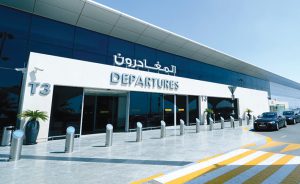ABU DHABI / WAM
After most of the multi-billion dollar airport construction projects were put on the back burner or temporarily curtailed over the past three years, operators and investors have been racing down the tarmac as the Middle East and Asia-Pacific regions are expected to account for 58% of the global air passenger demand in 2040.
The Capa – Centre for Aviation, one of the world’s most trusted sources of aviation market intelligence, says there have been 425 major construction projects at existing airports, with $450.7 billion in total committed expenditure globally, each of which is at various stages, from preparatory to about to conclude, along with 225 new airport projects and airport investor numbers swelling to 1074, including 258 airport operator groups or consortiums.
The Middle East region, positioned at the strategic crossroads of major economies of Asia, Africa and Europe, has transformed into a major international hub and continues to be an inspirational growth story. With over 110 airports, this is already among the fastest growing in the world, accounting for 170 million of the global traffic.
Airports in the Middle East will need to invest $151 billion in capacity expansion as the global air passenger demand is expected to increase more than two-fold in 2040. “This necessitates an investment totaling $2.4 trillion for Middle East and Asia-Pacific airports until 2040 to accommodate this growth,†the Airport Council International (ACI) said.
The ACI forecasts close to 19.7 billion passengers are expected to traverse the world’s airports by 2040 and the Middle East airports will handle 1.1 billion passengers by 2040 — a significant increase from 2019’s 405 million.
 The Gulf Time Newspaper One of the finest business newspapers in the UAE brought to you by our professional writers and editors.
The Gulf Time Newspaper One of the finest business newspapers in the UAE brought to you by our professional writers and editors.
